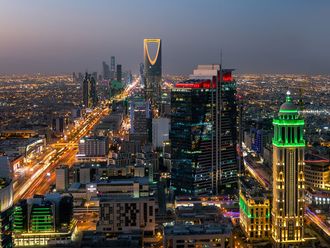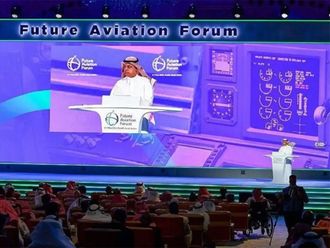Manama: The Gulf Cooperation Council needs to be fully integrated to be able to confront increasingly ominous regional and global challenges, Saudi Arabia said on Saturday.
“Our main concern now is how to confront the current and next challenges and the impact of the political, social and economic developments on our nations,” Prince Saud Al Faisal, the foreign minister, said.
The confrontation between Iran and the international community over its nuclear programme and its continuous provocation of the GCC states, the suffering of the Palestinian people, and the far-reaching political changes under the so-called Arab Spring require the GCC countries to contemplate the situation carefully and be steeled with a robust resolve, he said.
“The GCC countries need to maintain their interests, territorial unity, safety, stability, social peace and prosperity,” he said in the speech delivered by Abdul Aziz Bin Abdullah Bin Abdul Aziz, the deputy foreign minister, at the start of a conference for young Gulf men and women in the Saudi capital, Riyadh.
In his speech, Abdul Lateef Al Zayani, the GCC secretary-general, said that the conference was an outstanding step forward that needed to be encouraged and consolidated.
“The GCC is more than 30 years old and will always remain a robust entity that cares about its citizens,” he said. “However, the new political, security and military challenges, at the regional and international levels, as well as the insecurity in the Arab region and the changes in the regional and global forces of power demand that we look into developing the GCC. We need to reset the GCC priorities and strategic objectives to empower them to match the changes and events that we are witnessing today,” he said.
Protecting the GCC states and defending them from all internal and external threats, including foreign aggression, terrorism and organised crimes, now top the strategic goals of the alliance, Al Zayani said.
Young men and women are using the two-day conference to highlight their vision of the future as they look into ideas and proposals from young men and women from the Gulf countries on a call to move the six-member alliance towards a union.
Saudi King Abdullah Bin Abdul Aziz in December called the GCC states to move from the phase of cooperation to the phase of union within a single entity.
His call at the GCC summit sparked great interest in large segments of the Gulf society keen on the European Union model.
The GCC youth conference “GCC states from cooperation to union” organised by the Diplomatic Studies Institute on Saturday and Sunday has pledged to tackle all aspects of the call from the viewpoint of young people.
Papers at the conference include a study of the political and strategic dimensions of the Gulf union, the economic aspects of the Gulf union, Gulf security, young people and the Gulf labour market and the role of young people in knowledge economies.
Other themes address the social and cultural components of the Gulf union and the future vision of the Gulf union while workshops include youth and scientific and cultural cooperation, the role of young people in maintaining national cohesion in the GCC states and youth and their role in supporting Gulf integration efforts.
The conference is expected to issue a set of recommendations to activate the call by King Abdullah to move towards a Gulf union.
GCC integration must to confront challenges, Saudi minister says
Youth conference expected to issue recommendations to activate call by King Abdullah to move towards a Gulf union












